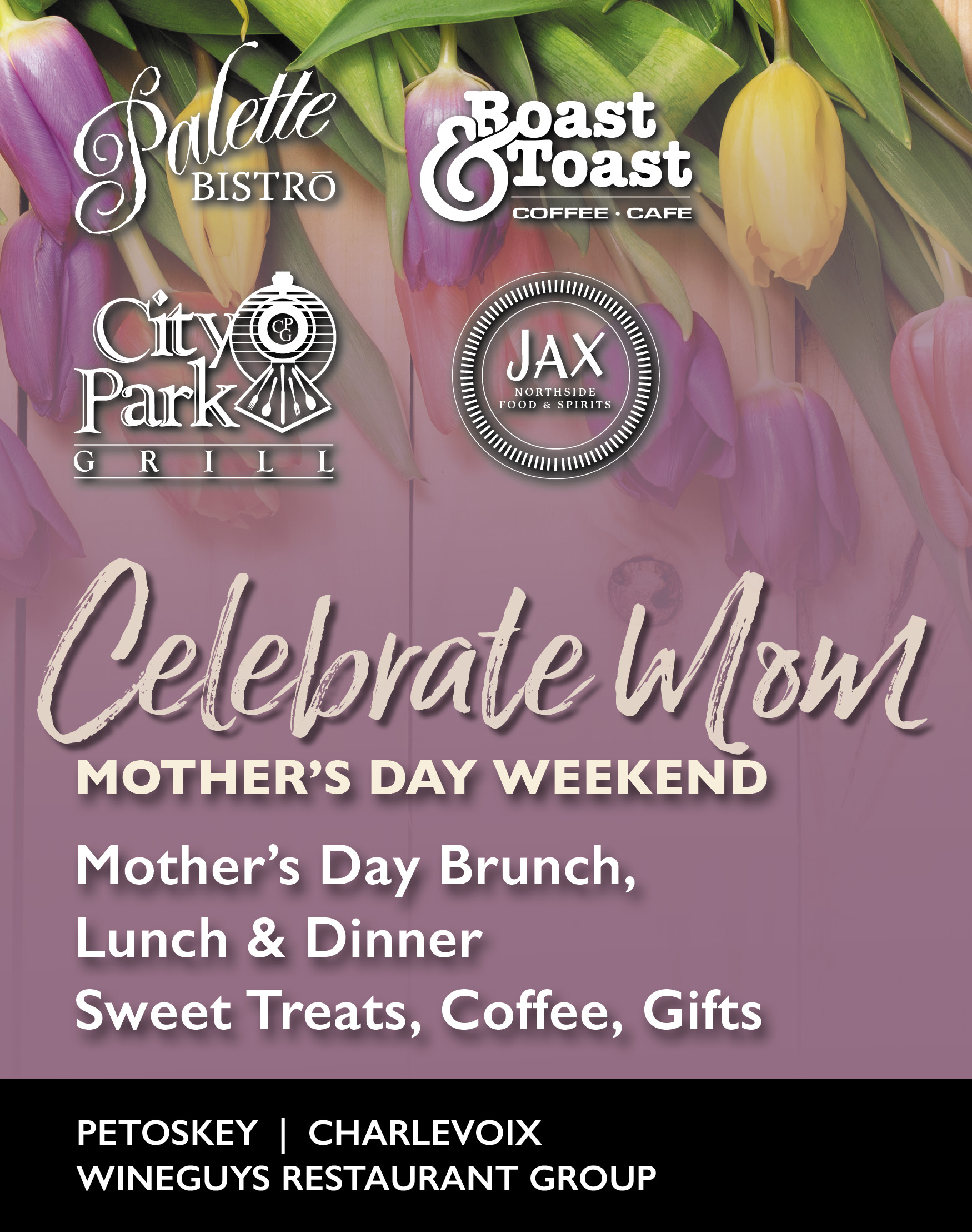A Souvenir for My Tourist Friends
Opinion
July 29, 2017
Hey, tourists, I like you! You have too many cars, which we could do without, but I like your irresistible hunger for local produce, your thirst for local wine and beer, your obsession with panoramic views, your jones for film, your addiction to outdoor events and recreation.
You, my new friends from New York and L.A. and Dearborn and Miami and Paducah, have helped create a new northern Michigan with shawarma, zingy beer, fine wine, ramen bowls, hard-to-find eateries, tattooed cheese ladies with squeeze-box dads, and such a long list of goods and services that it might better be simply called “a culture.”
So, from me to you in appreciation, let me give you a souvenir to take home with you. It’s unique to this place, like a Petoskey stone, but better.
A souvenir, by definition, has a story. There used to be a bomb plant in downtown Traverse City. (The 200,000th locally produced bomb is now a door-stop in my office.) Down the beach from the bomb plant site, there was a power plant with a tall smokestack and a wastewater pipe that drained into the bay. Farther down the beach there was a fruit-packing plant that leaked pits and stems into the bay and dirtied the sand. A few blocks up Union Street, there was a foundry that turned the Boardman riverbank rusty.
Upstream sat a waste treatment plant that leaked into the river and, on hot July nights, expelled odors so rank that all neighbors in the area were forced to close their windows. Around Boardman Lake from the waste plant, there was a railyard where cinders rolled down the bed toward the lake, and toxins leaked from industry on both sides of the lake. Hydro dams upriver created sediment ponds in the river. Boot Lake — well, you won’t find it because the city used it as a dump and filled it in. At the south end of town there was a rendering plant with an odor that tweaked your gag reflex. The fish in the lower Boardman sometimes had black spots on their stomachs, and the river mouth emptied a brown stain that flowed east along the shoreline.
To be fair, there also was some excellent fishing, and partridge and deer hunting. Many vacationed here for the striking natural beauty. But they had to choose their spots carefully.
There was culture, like the City Opera House, but it was culture that was visited, not lived. We townies on Saturday nights went down to the Rennie Oil gas station, where the wrecker hauled crashed cars, and peered through shattered windshields to see if there was any blood. In the winters we’d sneak into the Park Place Hotel and ride the elevator, checking each floor for vacationing skiers’ unguarded beer coolers.
Don’t get me wrong — life was OK. We threw back the spotted fish and plugged our noses on hot nights.
Then everything changed. The bomb plant site, the railroad spur, the power plant, the fruit packing plant — all of it and more — were bought by the city and demolished to create public spaces.
Whoever heard of buying something to turn it into nothing?
The foundry on Cass Road, the rendering plant south of town, the old helicopter-blade plant on Parsons Road, the old steel-fabricating operation on Woodmere Avenue, all of it was cleaned up and turned into housing sites, school classrooms, or governmental offices. The regional conservancy and others purchased key view property, rich uplands and shorelands. Around Boardman Lake, most industrial plants closed, and the local biking and hiking pioneers built the best trail in the area. On Old Mission Peninsula, residents voted to purchase development rights from farmers; there are now vineyards on hillsides instead of McMansions.
The list of policies and initiatives that created this area’s outdoorsy, agricultural Up North culture is too long to repeat. Suffice to say, in the post-industrial era, this area has cleaned up in more ways than one.
Especially in the downtown, where development pressure has been most intense, a “small-town character” ethic rose up with a vengeance. Voters rejected the notion of selling downtown parkland to a developer who planned a seven- story parking deck and mall; instead, folks created the open-air farmers market. Voters rejected a 10-story development and parking deck bond, then fought off another 10-story development on the main street. Last year, taxpayers voted to limit the city commission’s power to approve any building over 60 feet high.
Creating genuine small-town character is like demolishing industrial sites to create nothing; you can’t say exactly how it creates a better economy. It’s hard to define smallness and nothing, let alone monetize their value.
When the wonderful poet W.B. Yeats died, a fellow wrote an exquisite elegy that includes this:
For poetry makes nothing happen: it survives
In the valley of its making where executives
Would never want to tamper, flows on south
From ranches of isolation and the busy griefs,
Raw towns that we believe and die in; it survives,
A way of happening, a mouth.
One can make what one will of poetry, as one can make what one will of a region. I think this region has proved smallness and nothing might truly be “a way of happening,” perhaps the best way.
My friends — you who have brought your metropolitan tastes and high-speed vacationing Up North — I want to return the favor by giving you a souvenir to take home that is the essence of this place: Cup your hands and look at the nothing you see there, remembering the open beaches, the empty sky, the unimpeded horizon, the clarity of the water, the unscented air.
Grant Parsons is a trial attorney, a native of Traverse City, with a keen interest in local politics, especially land use.
Trending

Celebrating Michigan's State Stone
Rockhounds from across the region are headed to the 19th annual Petoskey Stone Festival, Saturday, May 17, at Barnes Park Ca… Read More >>
Nominations Are Open for TCBN’s 2025 40Under40
Want to shine a spotlight on the inspiring young business leader in your life? Nominations are now open for the 2025 Hagerty… Read More >>
Inhabitect Is Bringing Nature Home
Green infrastructure and ecological landscaping are coming to northern Michigan thanks to the team at Inhabitect. The full-s… Read More >>


